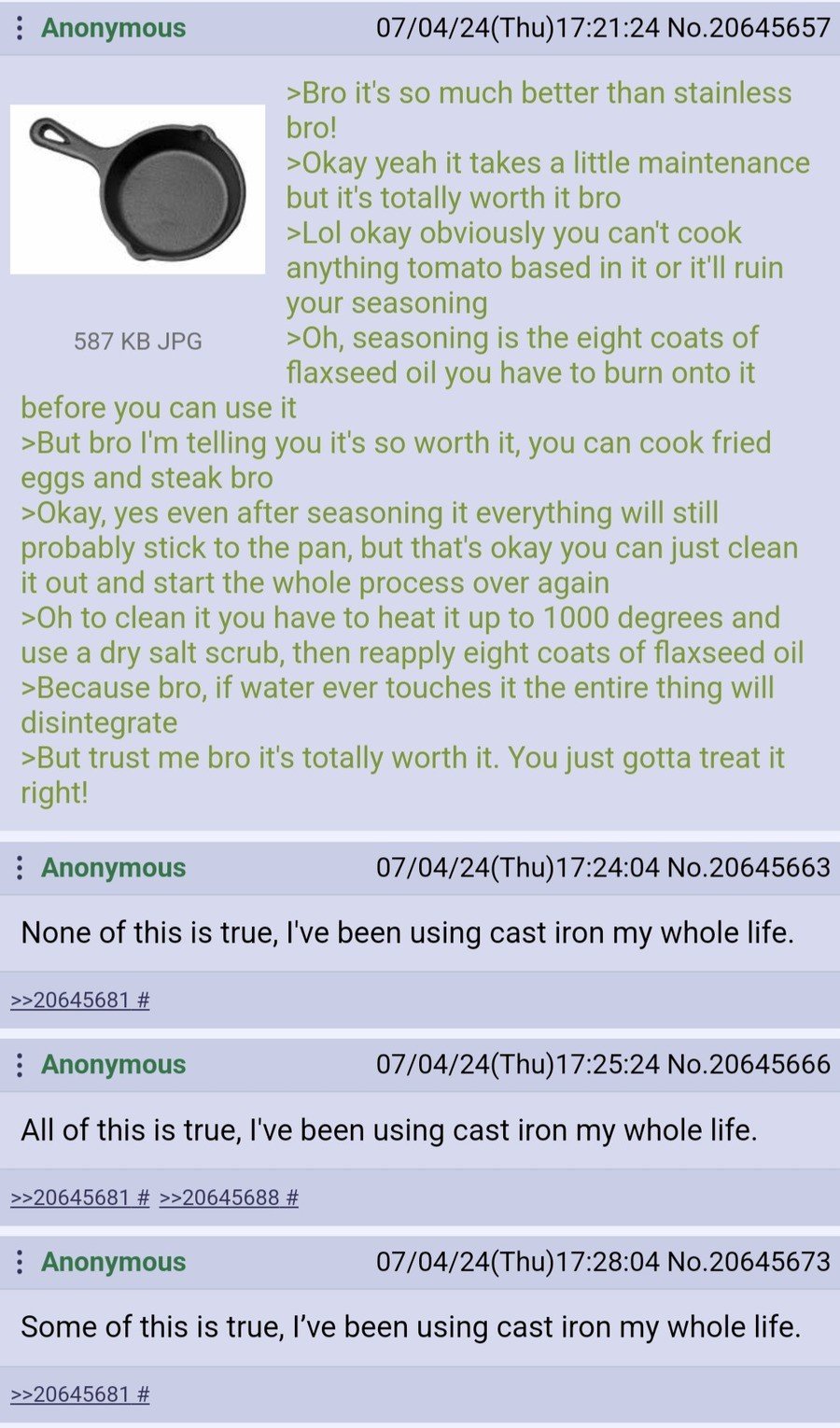this post was submitted on 02 Oct 2024
1087 points (99.4% liked)
Greentext
6221 readers
1373 users here now
This is a place to share greentexts and witness the confounding life of Anon. If you're new to the Greentext community, think of it as a sort of zoo with Anon as the main attraction.
Be warned:
- Anon is often crazy.
- Anon is often depressed.
- Anon frequently shares thoughts that are immature, offensive, or incomprehensible.
If you find yourself getting angry (or god forbid, agreeing) with something Anon has said, you might be doing it wrong.
founded 2 years ago
MODERATORS
you are viewing a single comment's thread
view the rest of the comments
view the rest of the comments

While oil is necessary, It's more about how you preheat it and your technique, rather than how you oil it; no amount of oil is going to save you from over crowding a cold pan.
Yep, the old hot pan cold oil technique you use with a traditional woks works well with cast iron, carbon steel, and stainless steel.
You basically get the pan as hot as you can, coat with enough to cover the pan with a thin layer of oil, and heat until smoking. Dump out your hot oil and add your cold oil and then your ingredients. If you get good at hot pan cold oil you can make just about anything nonstick.
I've always just used the bead test where you drop a drop of water in a dry pan and if it beads up and rolls around, instead of just sizzles, then the pan is hot enough to add oil (although this also works if it's too hot, but I have a good sense of how long it takes to get to this temp, so I'm usually testing just before and just after it hits this temp). Then when the oil is shimmering, this is the time to add food.
https://en.wikipedia.org/wiki/Leidenfrost_effect
you're telling me the infomercial lied to me?!
I have no idea but those aren't stainless steel pans. Like if you are using Teflon you don't want to preheat. Every pan type is used differently.
honestly I just wanted to reference the infomercial lol